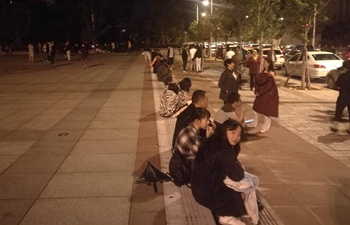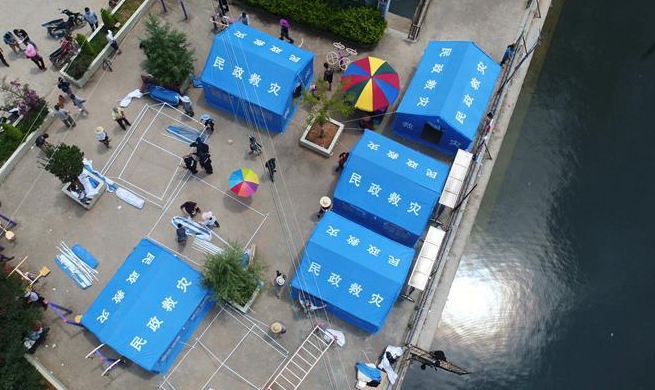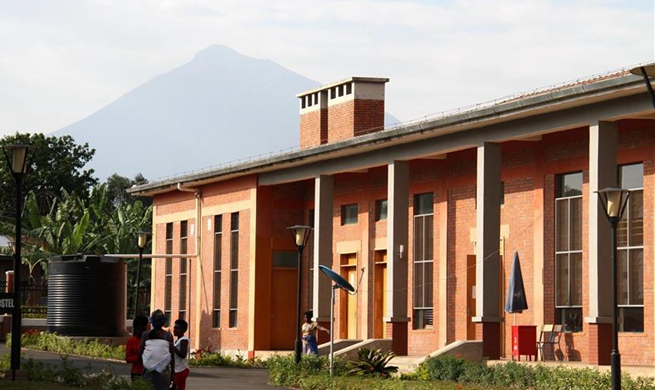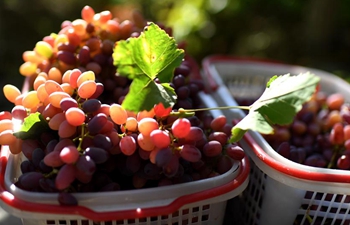LONDON, Aug. 13 (Xinhua) -- A crucial round of negotiations to try to resolve the issue of a post-Brexit border between Northern Ireland and the neighboring Irish Republic are to be held Thursday in Brussels, Britain's Department for Exiting the European Union said Monday.
The future of the 500 km border between the two is one of the biggest unresolved issues as Theresa May's government seeks to find a way of ensuring a frictionless border on the island of Ireland.
Brexit Seretary Dominic Raab and the EU's chief Brexit negotiator Michel Barnier will not be taking part in the new round of discussions. Instead high ranking negotiators from both sides will seek a way through the current deadlock.
On Friday the negotiations will switch to a proposed future relationship between Britain and the EU's remaining 27 member states after next March.
Meanwhile, new figures Monday from the Office for National Statistics (ONS) revealed the Irish Republic accounts for 27 percent of Northern Ireland's international export trade. The United States accounted for 25 percent, making it Northern Ireland's second biggest international export partner.
Northern Ireland's biggest export across the border into Ireland was food and live animals, particularly dairy products, which represented 33 percent of total exports to the Irish Republic.
More than two thirds (68 percent) of exporting businesses in Northern Ireland were small companies employing up to 49 workers.
Commentators in Britain and Ireland have warned that a no-deal Brexit could have serious consequences for industries that have extensive cross-border supply chains.
Last month May made her first visit to the Irish border since the 2016 Brexit referendum. She held talks with workers and business representatives from both sides of the border.
During her two-day visit May reaffirmed her commitment to a Brexit that avoids a hard border and protects the Belfast Agreement which brought to an end decades of conflict and troubles in Northern Ireland.
In a government white paper Britain has ruled out any kind of hard border.
"Daily journeys will continue to be seamless and there will be no checks or infrastructure at the border to get in the way of this," said May.
"I've also been clear we will not accept the imposition of any border down the Irish Sea and we will preserve the integrity of the UK's internal market and Northern Ireland's place within it," she added.
Media reports in Brussels said later that EU negotiator Barnier had rejected key elements of Britain's new trade proposals outlined in May's blueprint for a future post-Brexit trading relationship with the bloc.
Barnier made clear British offers to collect customs duties for the EU as part of efforts to avoid friction on Northern Ireland's new EU border had failed to convince already skeptical Europeans.
Both sides are aiming to have draft deal in place by October, but observers fear a no-deal outcome is looking increasingly possible.
Last week Britain's international trade secretary Liam Fox said the chance of a no-deal Brexit is growing, blaming the "intransigence" of the European Commission. Fox put the chance of failing to come to an agreement at "60-40", but 10 Downing Street has insisted the British government remains confident it can get a good deal with Brussels.













